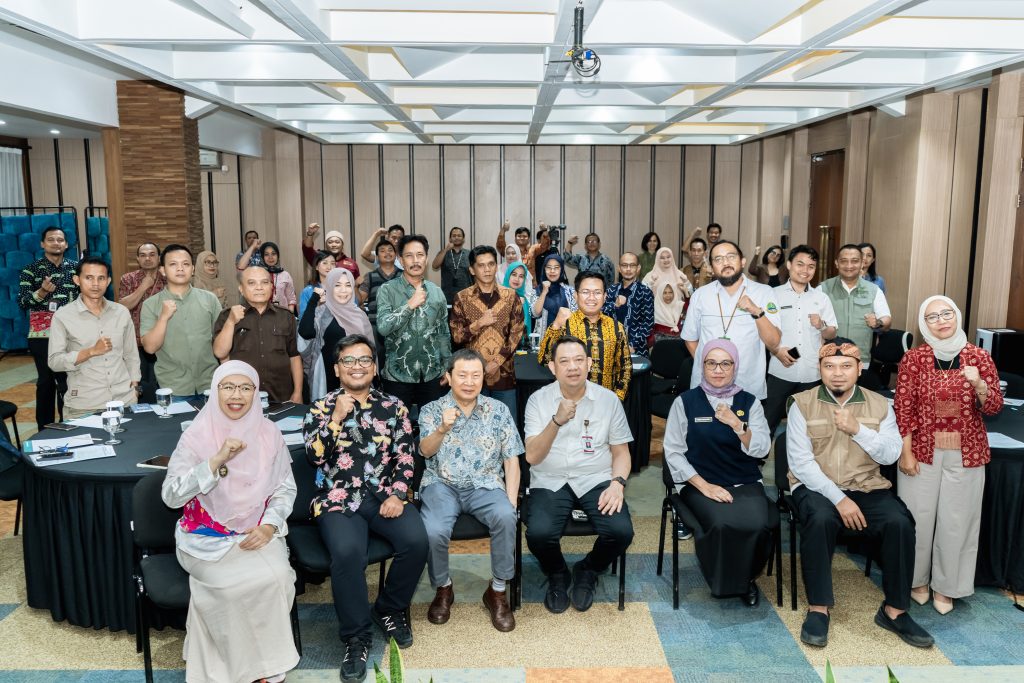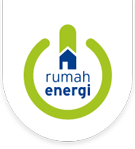Village Economic Transformation: BUMDes and Cooperatives as the Main Drivers of Clean Energy and Gender-Inclusive Development
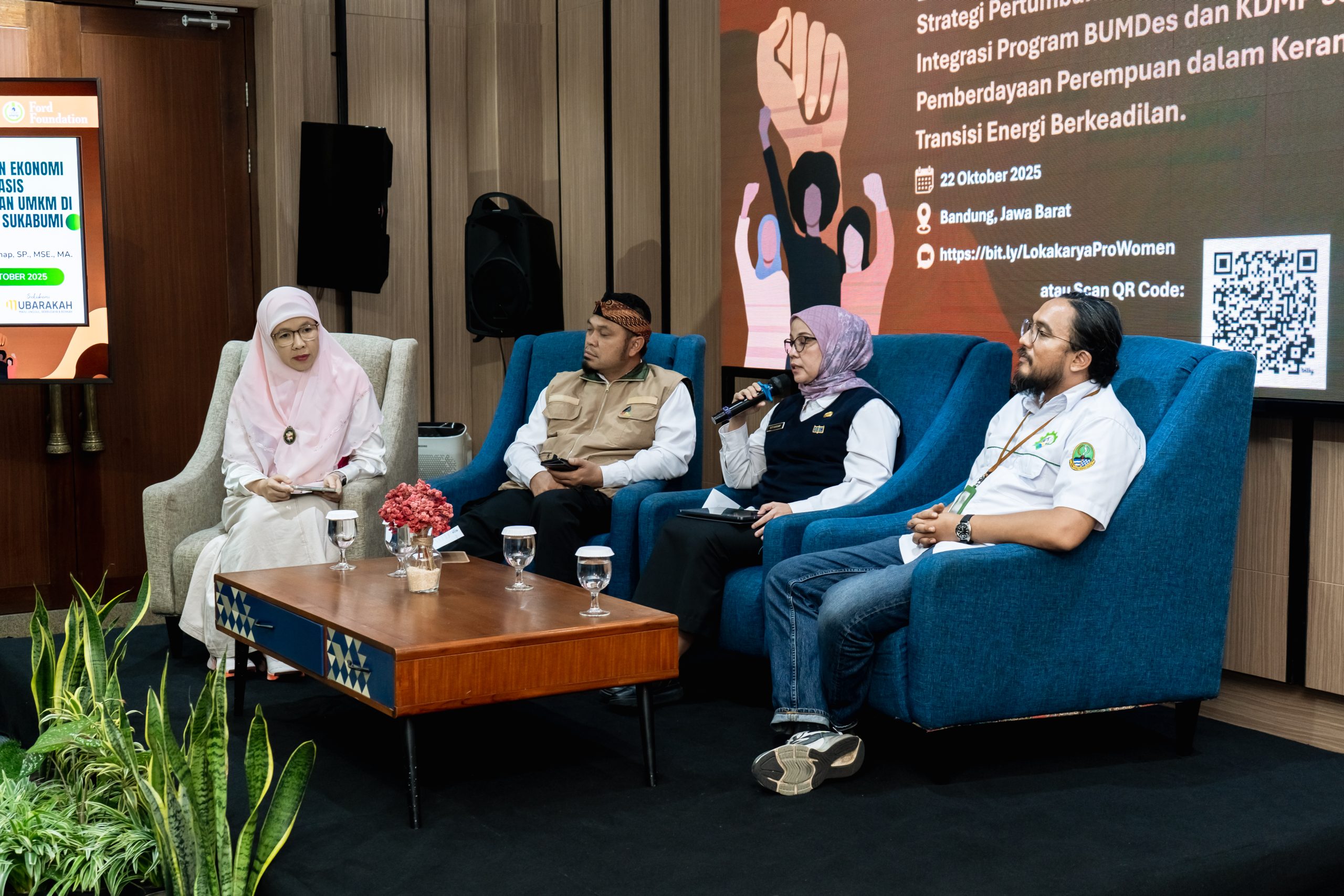
Bandung, October 22, 2025 — The Rumah Energi Foundation (Rumah Energi), supported by the Ford Foundation and the Ministry of Home Affairs (Kemendagri) of the Republic of Indonesia, held a workshop titled “Strategies for a New Economic Growth through the Integration of BUMDes and KDMP Programs and Women’s Empowerment within a Just Energy Transition Framework” in Bandung. This event marks an important milestone in strengthening cross-sector collaboration to drive Indonesian villages—particularly in Sukabumi Regency—toward becoming centers of green economic growth based on clean energy.
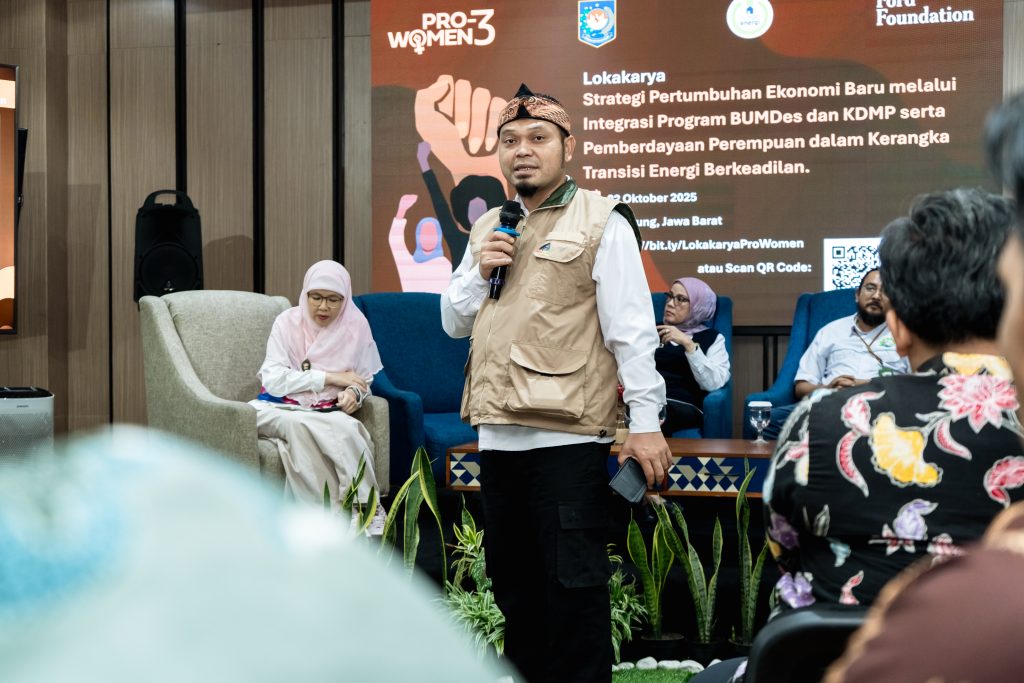
The central question is: how can village energy enterprises drive new economic growth? In the context of accelerating Indonesia’s national energy transition, Village-Owned Enterprises (BUMDes) and Village Merah Putih Cooperatives (KDMP) play a strategic role as the main engines of an inclusive, gender-equitable, and sustainable rural economy. Through synergy between BUMDes and KDMP, rural communities are encouraged to develop renewable energy–based business units—such as solar power, biogas, and biomass—as alternative solutions to address economic, social, and environmental challenges. These initiatives also aim to strengthen energy resilience, create green jobs, and enhance community welfare.
In this partnership, BUMDes serve to manage local economic potential into productive activities that create added value for communities. Meanwhile, KDMP function as cooperative networks that expand access to financing and strengthen collective, democratic participation in the village economy. The collaboration between BUMDes and KDMP enables the creation of an integrated rural economic ecosystem—where potential mapping does not stop at data collection, but is followed by concrete action plans such as developing renewable energy enterprises, food processing units, waste management initiatives, agricultural product distribution, and inclusive, eco-friendly microfinancing.
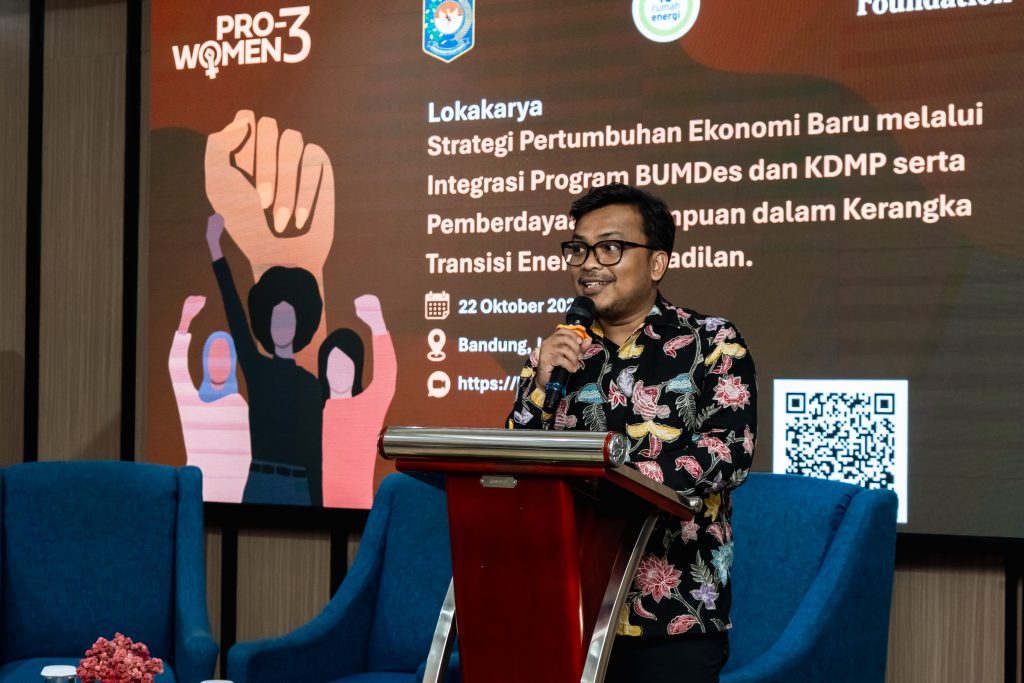
“The transition toward renewable energy is inevitable. To make it happen, we must ensure that energy growth benefits communities directly at the village level in an inclusive and sustainable way—so that it drives local economies and reduces poverty,” said Sumanda Tondang, Executive Director of Rumah Energi. “In this workshop, we emphasize one key to success: women’s empowerment. Women must be actively involved from planning to implementation.”
The workshop brought together diverse stakeholders, including representatives from the Ministry of Home Affairs, the West Java Provincial Office of Energy and Mineral Resources (ESDM), the West Java Office of Cooperatives and MSMEs, the Community and Village Empowerment Agency (DPMD) of Sukabumi Regency, and representatives of BUMDes and KDMP.
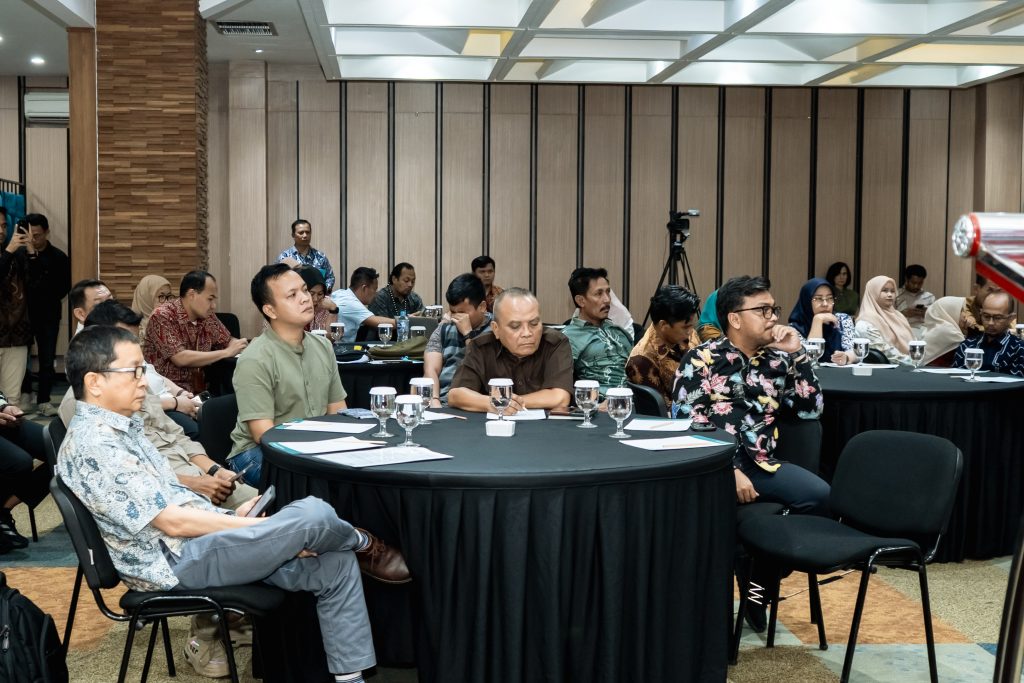
One of the main focuses of the workshop was strengthening women’s roles in the green village economy. This means that women are not merely beneficiaries, but also key actors in managing clean energy and developing village enterprises. Ensuring women’s equal participation across the entire economic value chain—from planning and production to technology management, decision-making, and benefit distribution—is essential. Providing women with access to training, technology, and financing helps them transform from household-level participants to community leaders.
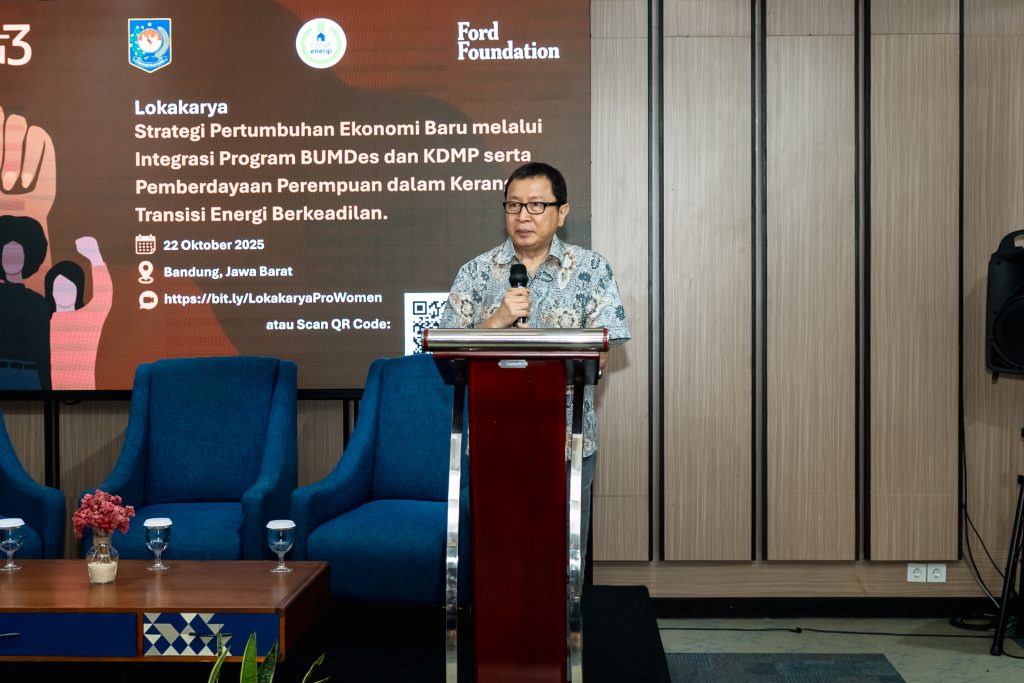
“Our focus in the energy transition is to ensure it is a just transition. We believe that the energy transition is not merely a technical issue but also one of social and economic justice—especially for families and women, who are the primary energy users in households,” said Alexander Irwan, Regional Director of the Ford Foundation Indonesia.
The workshop is expected to produce stakeholders capable of mapping village economic potentials by involving BUMDes and KDMP. Through this process, a simple yet effective business model based on energy and food systems can be developed, emphasizing gender inclusivity. This joint commitment aims to strengthen women’s roles in advancing the green village economy.
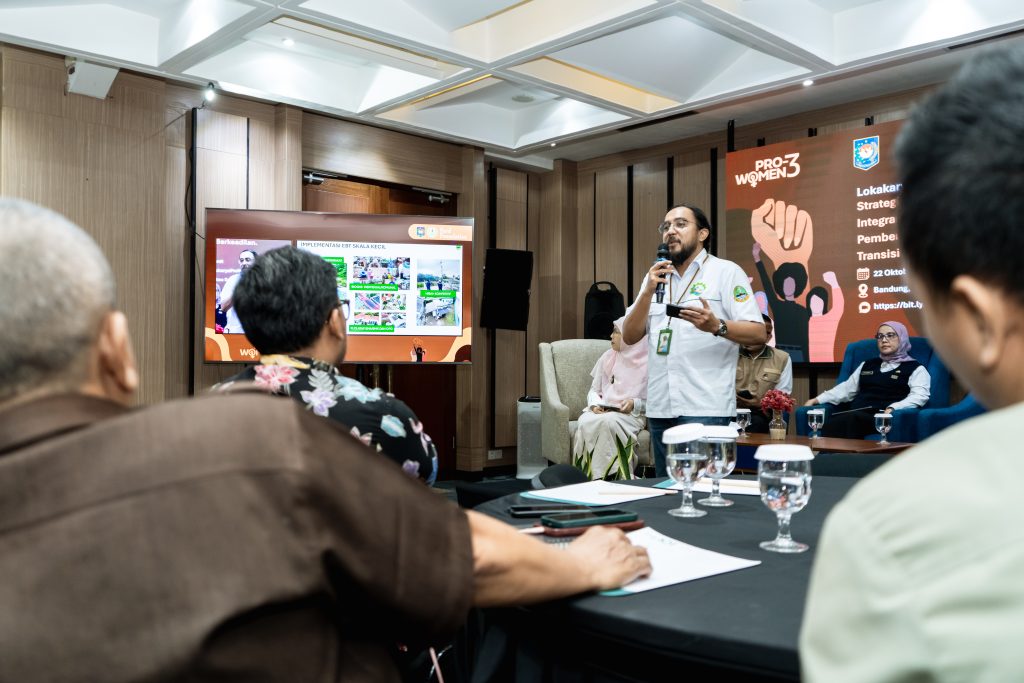
“The energy transition is a long-term journey that requires consistency and program continuity. One of our initiatives is collaborating with young influencers to promote renewable energy awareness, especially among youth as the next generation of change-makers,” said Permadi Mohammad Nurhikmah, Head of the Energy Division at the West Java ESDM Office.
This workshop is part of the Pro Women 3 Program, initiated by Rumah Energi with support from the Ford Foundation and the Ministry of Home Affairs. The program focuses on enhancing women’s capacities to support the clean energy transition and strengthen community-based local economies.
